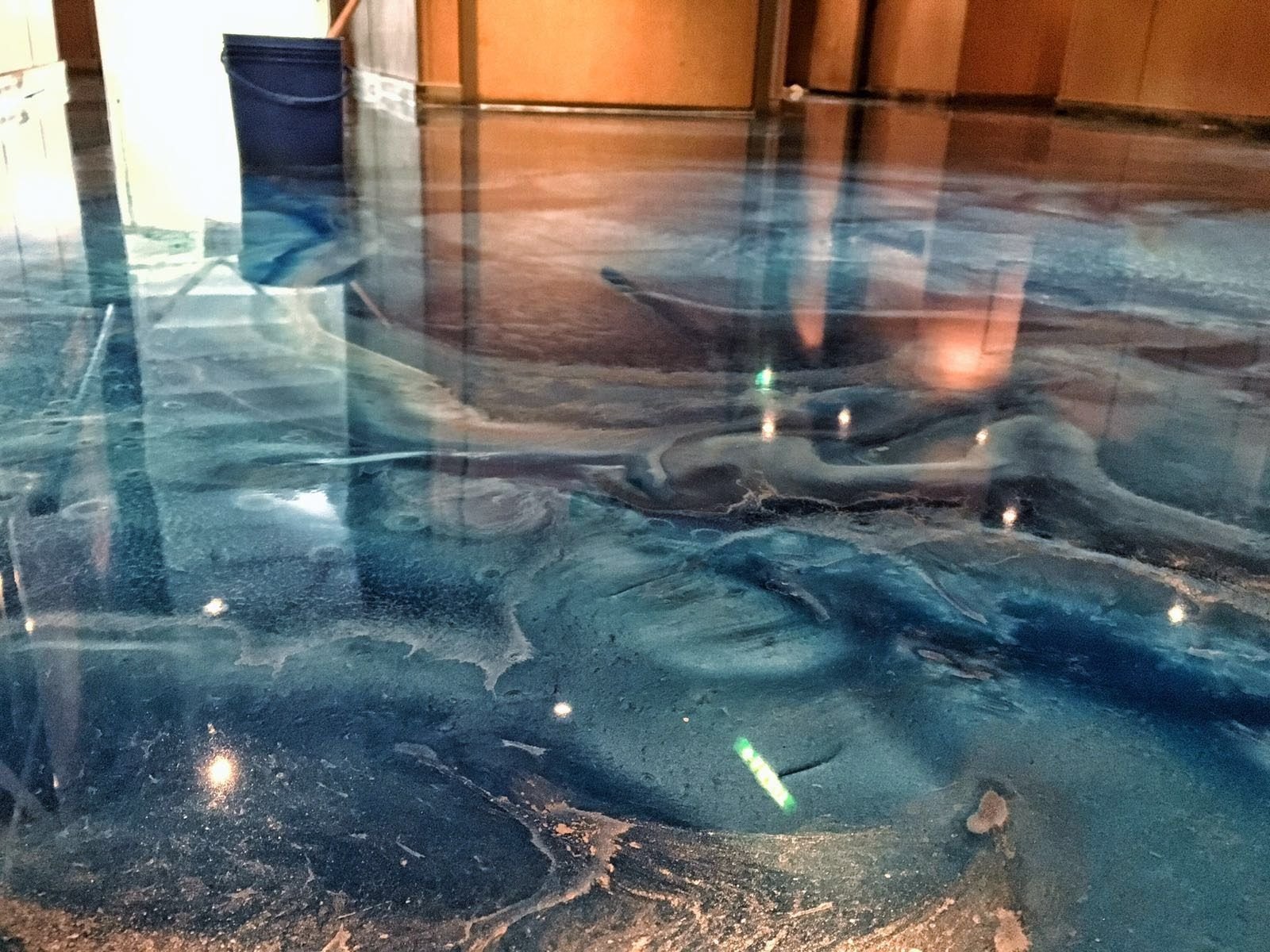Epoxy Paint The Ultimate Solution for Durable and Stylish Surfaces

Strong 8k brings an ultra-HD IPTV experience to your living room and your pocket.
When it comes to painting surfaces that require strength, durability, and a high-end finish, epoxy paint is an unbeatable choice. Whether you're dealing with garage floors, commercial warehouses, or stylish interiors, epoxy paint offers a powerful combination of aesthetic appeal and industrial-grade performance.
In this article, we’ll break down exactly what epoxy paint is, how it works, where it can be used, and why it’s gaining popularity in residential, commercial, and industrial settings worldwide.
What is Epoxy Paint?
Epoxy paint is a two-component coating system made from epoxy resin and a polyamine hardener. When these components are mixed, they chemically react to form a strong, adhesive, and durable surface coating.
Unlike regular wall paints, epoxy paint is designed not just for color but for performance. It offers resistance to chemicals, abrasion, moisture, and heavy impact, making it a top choice for high-demand environments.
Key Features of Epoxy Paint
✅ High Durability: Resists wear, peeling, and cracking
✅ Chemical & Oil Resistance: Perfect for garages and industrial floors
✅ Waterproof and Moisture-Resistant
✅ Customizable Finishes: Glossy, matte, metallic, and textured options
✅ UV and Heat Resistance (when UV-resistant topcoat is used)
✅ Low Maintenance and Easy to Clean
Where Can Epoxy Paint Be Used?
Epoxy paint is extremely versatile. It can be applied to a wide range of surfaces and spaces:
1. Residential Applications
Garage floors
Basement floors
Patios and balconies
Kitchens and utility areas
2. Commercial Applications
Retail stores and showrooms
Warehouses and storage facilities
Offices and co-working spaces
Supermarkets and shopping malls
3. Industrial Applications
Manufacturing plants
Automotive garages and service centers
Laboratories
Cold storage areas
4. Special Use Cases
Hospitals and cleanrooms
Schools and educational institutions
Airports and transit stations
Benefits of Using Epoxy Paint
1. Unmatched Durability
Epoxy creates a strong bond with concrete and other surfaces, making it ideal for high-traffic areas. It doesn’t peel or crack easily and can withstand mechanical stress, vibrations, and weight.
2. Moisture & Stain Resistance
Unlike traditional paint, epoxy is non-porous. This makes it highly resistant to water, oil, grease, and chemicals, reducing the risk of stains or surface damage.
3. Easy to Clean and Maintain
Epoxy-coated surfaces require minimal cleaning effort. Just a mop or mild detergent is enough to keep it shiny and clean.
4. Improved Safety
Epoxy floors can be customized with anti-slip additives and reflective coatings that improve visibility, making workspaces safer.
5. Attractive and Customizable Finish
Available in various colors, patterns, and even 3D effects, epoxy paint adds a modern and professional look to any space.
Epoxy Paint vs. Epoxy Flooring – What’s the Difference?
While often used interchangeably, they aren’t quite the same:
Feature Epoxy Paint Epoxy Flooring
Thickness Thin, like regular paint Thick (2–5 mm or more)
Application Painted on surface Poured and spread over floor
Use Case Light to medium-duty surfaces Heavy-duty industrial floors
Cost More affordable More expensive
If you’re coating walls, low-traffic areas, or looking for a cost-effective upgrade, epoxy paint is perfect. For heavy machinery zones or commercial kitchens, full epoxy flooring is the better fit.
How to Apply Epoxy Paint Step-by-Step Guide
Surface Preparation
Clean the surface thoroughly (remove grease, oil, dust)
Repair any cracks or holes
Sand or grind the surface for proper adhesion
Mixing Components
Mix the epoxy resin and hardener as per manufacturer instructions
Use a mixing paddle or drill mixer for even consistency
Application
Apply the first coat using a roller or brush
Allow the first coat to dry (usually 12–24 hours)
Apply the second coat for durability and finish
Curing Time
Allow 24–72 hours for full curing depending on room temperature and humidity
Pro Tip: For large or important projects, it’s best to hire a professional to ensure correct mixing, application, and curing.
How Long Does Epoxy Paint Last?
When applied correctly and maintained properly, epoxy paint can last:
5 to 7 years in residential settings
3 to 5 years in high-traffic commercial areas
Up to 10 years with regular maintenance and re-coating
Factors that affect lifespan include surface preparation, number of coats, foot/machine traffic, and exposure to UV or chemicals.
Is Epoxy Paint Safe?
Yes. Once cured, epoxy paint is non-toxic, odorless, and safe for humans and pets. However, during the application process:
Work in a well-ventilated area
Use gloves and protective gear
Choose low-VOC or water-based epoxy paints for home use
Conclusion
Epoxy paint is a fantastic solution for anyone looking to add both strength and style to their floors and walls. Its versatility, durability, and easy maintenance make it an ideal choice for everything from residential garages to industrial warehouses.
Unlike regular paint, epoxy offers long-lasting protection, a wide variety of finishes, and the peace of mind that comes with investing in a high-performance surface solution.
Whether you're a homeowner, a commercial builder, or an industrial facility manager, epoxy paint offers a smart, cost-effective, and aesthetically pleasing coating that stands the test of time.
FAQs
What surfaces can epoxy paint be applied to?
Epoxy paint can be applied to concrete, metal, wood, tiles, and drywall after proper surface preparation.
How long does epoxy paint take to dry?
It typically dries to the touch within 12–24 hours, but full curing can take 48–72 hours.
Is epoxy paint waterproof?
Yes. Epoxy forms a non-porous, waterproof barrier ideal for moisture-prone areas like bathrooms and basements.
Can I apply epoxy paint myself?
Yes, but it requires precise mixing and surface prep. For large or complex jobs, hiring a professional is recommended.
How is epoxy paint different from regular wall paint?
Epoxy paint is more durable, chemical-resistant, and long-lasting than regular paint. It also creates a glossy, harder surface.
Does epoxy paint smell?
Some epoxy paints, especially solvent-based ones, emit strong odors during application. Water-based epoxy is a low-odor alternative.
Can epoxy paint be used on walls?
Yes. It is commonly used on walls in commercial kitchens, hospitals, garages, and warehouses for added durability and cleanliness.
Note: IndiBlogHub features both user-submitted and editorial content. We do not verify third-party contributions. Read our Disclaimer and Privacy Policyfor details.


